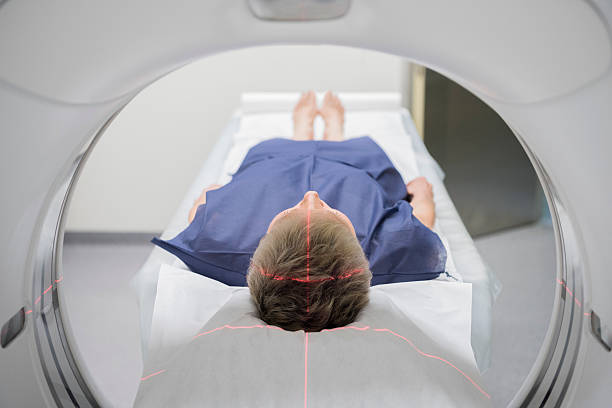
PET/CT Scans at Spartanburg Regional Healthcare System
Positron Emission Tomography/Computed Tomography, known as PET/CT, combines nuclear medicine and CT imaging technology. PET/CT scans provide valuable information about many conditions, including blood flow to the heart, cancer and brain disorders.
PET scans capture how an organ or system performs at the cellular level. CTs create a 3-D map so doctors can measure the size, shape and location of the affected area. Because of its ability to pinpoint molecular activity, PET/CT scans can detect diseases in their earliest stages.
Conditions evaluated by PET/CT scans
Patients receive an injection of a radiopharmaceutical, also called a radioactive tracer, that highlights cell activity. Each radiopharmaceutical has a different molecular makeup that attracts it to certain types of cells.
PET/CT scanners do not emit radiation. They read radioactive tracers to create detailed images.
Cancer cells, for example, react to glucose. People who have a PET/CT for cancer may be asked to go on a high-protein, low-carb diet to “starve” cells of glucose before the exam. The radiopharmaceutical binds to the hungry cancer cells.
You will receive a dose of radioactive material; enough to obtain the critical images but small enough that it will leave your body quickly after the test.
Overall, PET/CTs provide life-saving information to:
- Determine if cancer treatment is shrinking a tumor
- Diagnose and stage cancer
- Evaluate heart health
- Look at the health of tissues
- Study the brain for conditions like epilepsy, seizures, tumors and dementia
- Understand if organs are functioning normally
Preparing for PET/CT scan
When you receive a call to schedule your PET/CT, the scheduler will go over your test's requirements. Your preparation will depend on the purpose of the exam.
You may need to eat a particular type of diet or stop some medications.
For some PET/CT studies, such as a gastric exam, you will not be able to eat or drink anything for four to six hours before your test. For heart exams, you may need to avoid caffeine for 24 hours beforehand.
Tell your scheduler if you’re breastfeeding or if you could be pregnant.
Your PET/CT scan
Allow about two to two-and-a-half hours for your PET/CT scan. The actual scan will last 20-30 minutes, but your care team needs time to prepare you.
In some cases, you will wear a hospital gown. In others, you will be able to stay in your clothes. Please remove anything metal.
To prepare for the scan, you’ll go to a quiet room where a technician will set up an IV for the radiotracer. Techs administer different pharmaceuticals depending on the goal of the exam. The tracer will need to metabolize for 45-60 minutes.
During the scan, you will lie on a table that then moves into the large, doughnut-shaped machine.
Radioactive particles dissipate rapidly during urination. By the time you leave the imaging center, most of the tracers will be gone.
Choosing Spartanburg Regional for your PET/CT
We diligently review the latest literature and developments in PET/CT imaging to give our patients the most up-to-date care and technological advances. We were among the first in the state to offer digital PET/CT scans.
Our caring, compassionate staff works hard to explain the procedure, ensure your privacy and keep you informed during your time with us. Your referring doctor should contact you within 24 hours with the results of the exam.











